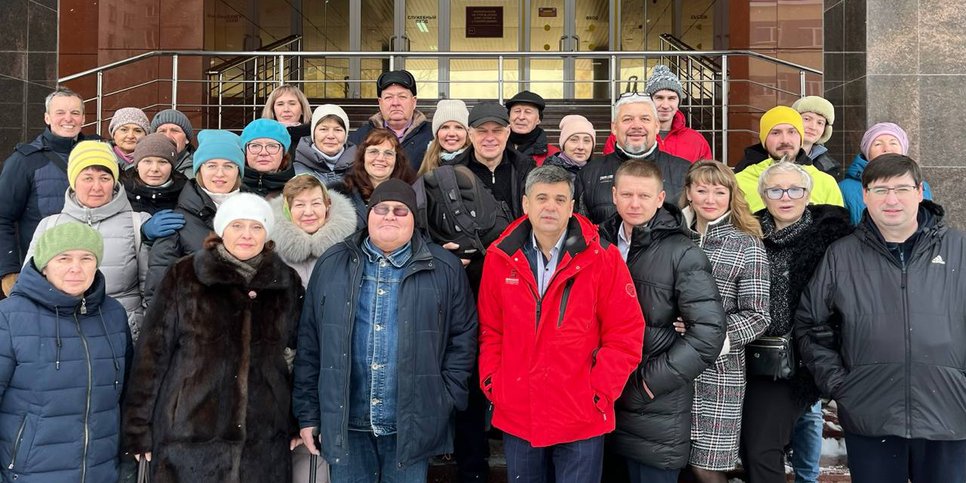Anatoliy Isakov with his friends in front of the court building
Anatoliy Isakov with his friends in front of the court building
Court of Appeal Upholds Sentence for Against Anatoliy Isakov, Cancer Patient, for His Faith. He Will Pay a Fine of 400,000 Rubles
Kurgan RegionOn November 14, 2024, the Kurgan Regional Court decided not to toughen the sentence against Anatoliy Isakov, 60, as Dmitriy Kulikov, Deputy Prosecutor of Kurgan, had sought. In his appeal he requested 8 years in a penal colony for the believer with a disability.
Anatoliy's peaceful meetings with friends, where Bible topics were discussed, were portrayed by the prosecution as organizing the activity of an extremist organization. Among the evidence presented against the believer were testimonies from witnesses who either did not know Anatoliy or had retracted their previous statements. A secret witness admitted during interrogation that Isakov's actions did not violate anyone's rights.
From the very beginning of the criminal prosecution, Isakov faced threats to his health — he was placed in custody despite serious illnesses that precluded such a measure. Only after the intervention of human rights organizations was Anatoliy released from the pretrial detention center.
"The Supreme Court of the Russian Federation did not ban the religion of Jehovah's Witnesses," the believer emphasized in his final statement. "I still have the right to freely practice the religion I have chosen, including reading the Bible and discussing it with others, praying to God, singing songs praising God, and talking to others about my faith. [...] What is happening to me is political repression. Actually, I was found guilty for practicing the religion of Jehovah's Witnesses. By their actions, the state authorities have portrayed me in an unfavorable light before society, contributing to the spread of prejudice."
Many believers with disabilities face similar treatment from law enforcement officers. Among them are Andrey Vlasov, Vladimir Fomin, Adam Svarichevskiy, Vladimir Skachidub, Denis Peresunko, and Aleksandr Lubin. The latter died a month after his guilty verdict was handed down.


